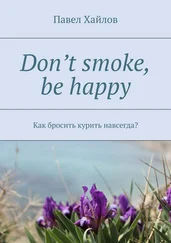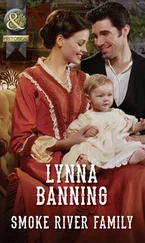“Before long the whole village realised something was wrong. The children noticed it first. They started teasing me, trying to get me to lose my temper, get into trouble, smoke. But I couldn’t. It’s not that I didn’t try. I’d go to bed thinking about it, planning out some piece of mischief: how I would take a swing at someone, or steal Granny’s hat and feed it to the pigs. Sometimes I even went through with my plan, hit a boy over the head with a log, or ripped the sleeve on the blouse of an aunt. But my heart wasn’t in it. I did it like I did my chores. The Smoke never rose.
“By the time I was eleven, the children in the village had started avoiding me. The adults too. A rumour got around that I was sick somehow, gone funny in the head. My parents tried to quench it. I was just like a gentleman, they said, an angel, a proper little lord. The village should be proud. It calmed things down for a while, but the suspicion did not cease. I was different. Separate. Not part of the fabric of life. An angel, maybe. But who wants to go fishing with an angel?
“One day, they took me to the vicar. Our village was small and isolated; we had a church but no priest of our own. He came on Sunday mornings to read us our sermon, good and salty, as the villagers liked to say, to last us the week. A thickset man with a marvellous head of curly red hair.
“He examined me in the little shed at the back of the church that served as a sort of office. I have a memory of standing before him, stripped to the waist, and his counting up the moles on my chest. ‘Dost the devil live in thee?’ he asked. I told him I did not know. One of the moles, he told me, looked like a cloven hoof. A witch’s mark, a most evil omen.
“He wrote a report, they say, and even sent it to the bishop. There was no answer. Perhaps he decided against posting it in the end. The vicar was a simple man. He did not want to invite trouble.
“In any case, it got out, the thing about the mole. The whole village took against me then. It was said that I was cursed. The Wandering Jew they started calling me. Bearing the mark of Cain. I did not even know what a Jew was then, but I’d heard about Cain. I left the village the day I turned fourteen.
“I had learned no trade but found work at an inn, some twenty miles from home. Three weeks I lasted, then the innkeeper sent me on my way. ‘You are scaring away the customers,’ he said. ‘One cannot trust a man who does not sin.’ His wife packed me lunch and gave me a pair of socks in parting. When I walked out of their gate, I saw her cross herself against my curse.
“By the time I was twenty, I had learned that it was best to hide my condition. I kept to myself, moved from town to town every few months. The Wandering Jew. Condemned to be good. Though not good, not really. Lukewarm. There is a line in the Bible, in Revelation, about God spitting out the lukewarm. He loves the hot, the cold. I am not welcome at his hearth.”
He frowns, but then his wife is there, resting her hands on Grendel’s shoulders. Her eyes are on Thomas and Livia, daring them to add to her husband’s woes. But this is not the time to be bashful. Grendel is a miracle, or else a man with a crippled soul. It is important to understand which.
“So you don’t feel anything?” Thomas asks.
“Oh, I feel,” Grendel says quietly, mournfully, reaching up to brush his wife’s arm. “I feel sadness and irritation; feel grateful to have steady work and fearful every morning when I set out across the city; relieved when the day is over and my good wife welcomes me at home. But my heart does not boil with it, and I do not forget myself. It’s as though my blood runs thinner than other men’s.”
“Don’t you listen to him,” Mrs. Grendel interjects, her face flushed dark and a hint of a shadow darting from her nostrils. “He is the best man that’s ever lived.”
“I believe you,” Livia says into her anger. She is different now that they are with Grendel, hopeful and composed, the afternoon’s terror banished from her face. “If my father weren’t ill, he would make him famous up and down the land.”
It’s only Thomas who fails to chime in but simply sits there, twirling a crayfish leg, the stump of his ear itchy with fever and sweat.
The boy comes to my door. A young man really, ginger fluff on his cheeks. You don’t see many of his colour. Deep copper red, with copper skin. Like a ginger Tartar, but prone to blushes, hale cheeks filling with a darker hue.
Somehow it isn’t a surprise to hear his accent. His clothes are dirty but there is something to his bearing. I’m no friend of toffs but you have to like the way they hold themselves. No slouching, shoulders squared, the eye resting comfortable on yours. And for a rich sod, he’s awfully polite.
“My name is Charlie,” he says. “I am heading to London. Might I beg some food and water?”
“Beg” he says, calling it what it is. A good clear gaze on him. Puts a man in a mind to regret he does not have a son.
“You can have water at any rate.”
I draw him a measure from my well. He drinks straight from the ladle.
“As for food,” I say, “I’ve got the rot.”
I show him to my storeroom, where my potatoes lie riddled with black; break one in half and show him the deep veining, clammy to the touch.
“You’re welcome to a plateful, if you can stomach them”—I point to the stove, where I am heating my lunch—“but they may do you more harm than good, not being used to such fare.”
He wavers, clutches the broken spud I have shoved in his fist, too tired to think. When I offer him a stool, he sinks down exhausted.
“Maybe I’ll try a bite.”
Once they are boiled, I fry the potatoes in some dripping. The smell that rises from the pan is frightful, even to me, but the hole in the boy’s stomach proves bigger than his disgust. I don’t offer him seconds. I don’t have enough to be generous, and it won’t do him any good once the food hits his guts. We each have a thimble of liquor afterwards. “Calms the brewing storm,” my Mary used to say. A better use for the potatoes perhaps.
“You are dead tired, son,” I say when he rises to leave. “I can offer you shelter. A place in the barn. You won’t make London tonight.”
“I can’t,” he answers, giving it thought. “I have friends ahead, waiting for me. They’ll be worried.” And then he adds, firmly, with a simplicity I did not know existed amongst the gentry: “You are a good man.”
“Ah,” I say, embarrassed, “I smoke as much as the next sinner. But the sun is out today, and my knee’s finally on the mend. Small blessings, eh, son?”
“Are you married?”
“Was,” I say, pointing to the row of crosses that mark my wife’s and daughters’ graves. “It’s a hard life.”
“A hard life,” he repeats like it is news to him, and weighty information. “Thank you for your kindness. Good-bye. Beware of dogs.”
ф
I chew on this all through the night— Beware of dogs —my stomach queasy with the rotten food. At dawn the second gentleman comes calling. He is a dark one, head to toe, fine clothes shiny with Soot, as though they have been lacquered by an enterprising tailor. A young one, too, not much older than the copperhead. His dog is an odd thing: red, drooping eyes in a dark, drooping face. A beaten cur, slavish and vicious. It steps close and smells me like I am a steak.
“I am looking for a young man who passed this way,” the dark one says to me. His face lacks colour underneath the Soot. It is pale and papery, as though it has been powdered with chalk.
“You wouldn’t have seen him? Well-born, dirty, reddish hair.”
Читать дальше












